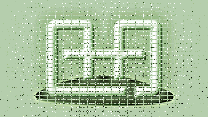For a decade or more our NoteCard 2.0 freeware has languished in relative obscurity as an unassuming little tool to help beginners learn the musical notes. In fact (as the ‘2.0’ reveals), an even more primitive NoteCard once walked the Earth. That NoteCard ran on the Commodore 64, a very popular machine from the Dawn of Personal Computing.
But even NoteCard 1 wasn’t the real beginning. That was a year or two earlier when I was teaching piano in Toronto. Like many piano teachers, I had several students who found it frustratingly difficult to master note-reading, to such a degree that it was a real barrier to progress. And, again like many others, I had the idea of creating decks of musical flash cards — small cards with a staff note on one side and the note name on the other.
Flash cards are great. They are the quintessence of manual drill: there’s nothing like them for learning foreign vocabulary, for instance. Anyone who has tried to learn vocabulary from a simple written list has probably noticed an inherent problem with that method: you end up learning the information as sequenced. What flash cards contribute is randomness. They let you develop your ability to recall information without the crutch of a predefined ordering. They teach you to be mentally ready for the rough and tumble of information in the real world. Another benefit of flash cards is total focus on the learning task: there is no overhead, no frills, no distracting frivolities. And they work just as well for musical notes as they do for languages.
Flash cards are great, but in an era of personal computing they’re not as great as they used to be. In fact, we can now do much better. When you start thinking about ‘computerizing’ flash cards, what probably comes to mind first is the convenience of not having to shuffle the deck, and not having to keep track of little pieces of cardboard any more. And those are good things. Even better, though, are the things only a computer can do, things like:
- measuring your response speed
- storing your results for analysis
- playing back notes as you enter them, to involve aural memory
- allowing different clefs without needing a new deck for each
- including optional complications like sharps and flats
- offering a choice of on-screen ‘instruments’ for note entry
- focusing on the weaker notes for extra practice
- providing an impartial measure of achievement
The new release, NoteCard 3, includes all these features and more. For instance, another key addition is support for multiple users, each with their own settings and records. NoteCard 3 allows up to three users to share a single installation of the software. With all these enhancements, the software is no longer limited to being just a passive tool. Now it can serve as an active guide, a tutor able to react and respond to the user’s individual learning situation.
NoteCard 3 is available for download and purchase immediately from AheadWithMusic.com. The software includes a 10-day trial of its two modes: Paid and Free. Users can learn their notes perfectly well in either mode, but the Paid mode offers a cluster of bonus features that I hope many users will value. If a Paid License has not been purchased during the 10-day trial, the software continues indefinitely in Free mode.
